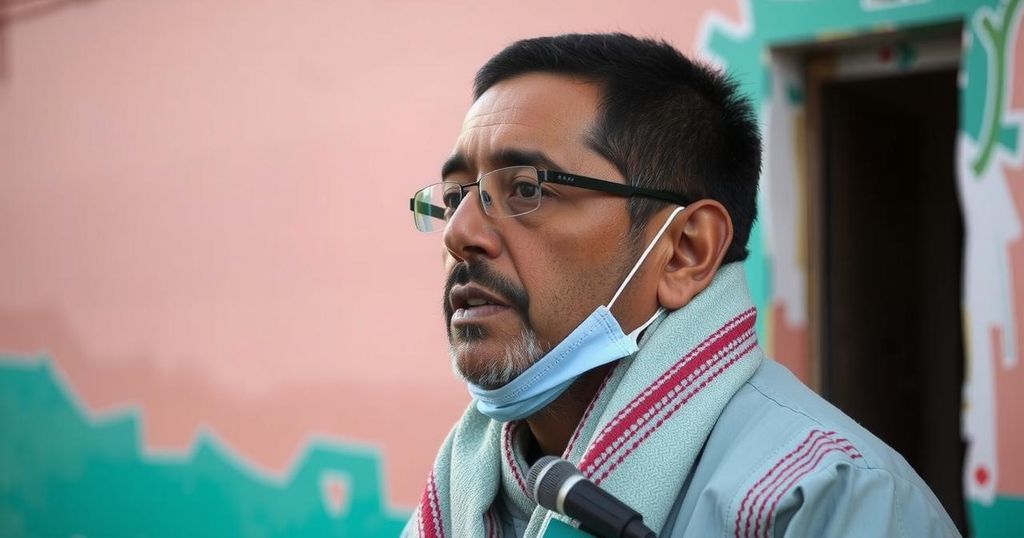Said Ait Mahdi, a Moroccan activist, was sentenced to three months in prison for defamation regarding his criticism of the government’s handling of earthquake recovery efforts following the 2023 El Haouz earthquake. His legal team plans to appeal the decision. The earthquake caused widespread destruction, prompting ongoing demands for rapid reconstruction and effective aid to affected families.
On Monday, a Moroccan activist named Said Ait Mahdi was sentenced to three months in prison by the Marrakesh Court of First Instance for defamation related to comments he made regarding the government’s response to the 2023 El Haouz earthquake. Ait Mahdi, who leads a victims’ advocacy group, has been detained since December 23 and was accused of making false statements that allegedly insulted local officials and violated privacy rights. His legal team indicated that he plans to appeal the decision, which also included a requirement to pay damages amounting to 10,000 dirhams (approximately $1,000) to each complainant.
The situation arose after officials lodged complaints claiming that social media posts by Ait Mahdi contained defamatory remarks. His advocacy group has been vocal in demanding expedited reconstruction efforts and enhanced support for families affected by the earthquake, which struck El Haouz province in September with a magnitude of 6.8, resulting in significant casualties and destruction. Reports from December indicate that the Moroccan government issued 57,000 permits for reconstruction, with over 35,000 homes either built or underway, as part of a larger $11 billion initiative aimed at revitalizing the earthquake-impacted areas.
Said Ait Mahdi’s imprisonment sheds light on the ongoing struggle between activists and the government regarding disaster response accountability. His group has actively campaigned for governmental transparency and efficiency in aid distribution, advocating for those displaced by the quake to receive the necessary resources before winter arrives. As the community continues to recover from the devastation, Ait Mahdi remains a symbol of resistance against what many perceive as inadequate governmental response.
The 2023 El Haouz earthquake in Morocco had catastrophic effects in the region, resulting in nearly 3,000 fatalities and damage to approximately 60,000 homes, particularly in the High Atlas mountains. The aftermath exposed the vulnerabilities in disaster response and the need for adequate support systems for affected communities. The government has since initiated a significant reconstruction program, committing $11 billion over five years to rebuild the affected regions. However, questions regarding transparency and the pace of aid distribution have incited criticism from activists and community leaders, including Said Ait Mahdi, highlighting the ongoing challenges faced by disaster survivors in receiving timely assistance and support for rebuilding their lives.
In summary, the sentencing of Said Ait Mahdi demonstrates the tensions between community activism and governmental authority in post-disaster recovery efforts. His imprisonment for defamation underscores the struggles faced by those advocating for greater accountability and support for earthquake victims. As reconstruction progresses, it is vital that the Moroccan government addresses the concerns raised by activists to ensure adequate and efficient aid reaches those in need, thus fostering a collaborative approach to recovery in the aftermath of such a devastating event.
Original Source: newscentral.africa






